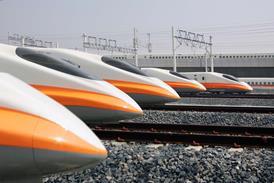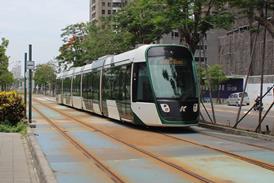Variable headways based on real-time passenger numbers to be tested
By Metro Report International2017-06-08T11:52:26

DENMARK: København metro authority Metroselskabet has signed a memorandum of understanding with Ansaldo STS to develop a proof-of-concept dynamic headway technology for the city’s metro.
Already have an account? LOG IN
To continue…
You’ve reached your limit of content for the month
Get enhanced access to Railway Gazette news and weekly newsletters.

For almost 200 years, the Railway Gazette Group has been the leading provider of news, analysis and intelligence for the international railway industry. Our independent and authoritative content is read by operators, regulators and the supply industry in over 140 countries using a variety of tailored subscription packages.
Site powered by Webvision Cloud



